If you have Hashimoto’s then you probably understand the struggle associated with this autoimmune disease.
For those who are newly diagnosed, though, let me fill you in on some important details about Hashimoto’s.
The first thing that you should know is that Hashimoto’s is an autoimmune disease of your thyroid gland.
This means that your immune system is slowly and systematically destroying your own thyroid gland.
Over time, and if not treated, then this autoimmune damage can lead to the COMPLETE destruction of your thyroid gland.
The reason that so many people feel poorly when they have Hashimoto’s is that it destroys one of the most important glands in your body:
Your thyroid.
So as this destruction occurs you will start to feel the symptoms of a condition known as hypothyroidism (you can sometimes feel hyperthyroid, as well, but this is less common) such as constant weight gain, crushing fatigue, debilitating pain in your joints, brain fog, confusion, irritability, depression, and so on.
But you probably at least already know some of this or you wouldn’t be here.
What I want to focus on is what CAUSES Hashimoto’s.
What kind of things, when you come into contact with them, trigger your immune system to become confused and start the cascade of conditions which ultimately leads to Hashimoto’s thyroiditis?
While it may sound obvious that this is something you would want to know, you should know that the only people who care about the cause of your Hashimoto’s are you and me.
You should NOT expect your doctor to care at all.
The reasons for this are complex but it boils down to the fact that doctors really only care about one thing:
Whether or not you need thyroid medication.
If you don’t then they aren’t interested in pursuing the cause of your disease.
If you do then they are only interested in managing the medication.
So it really is up to YOU to figure out what caused your condition.
And the reason we care about this is that this information helps YOU to manage your disease and potentially STOP its progression.
8 Types of Hashimoto’s Thyroiditis:
If you can find the SOURCE or CAUSE of your Hashimoto’s thyroiditis then you are already well on your way to treating and managing your condition.
What most people want to know is whether or not they can IMPACT the progression of their disease.
If you ask a doctor he/she will tell you that Hashimoto’s is progressive and there’s really no treatment for it.
But that is not entirely true.
Autoimmune disease ALWAYS has a cause or a trigger, if you will.
And if you can spot this trigger then you may be able to either stop it (if that’s possible) or at least manage it (which is ideal).
Doing so may help you get your antibodies under control and help you feel better (without the use of thyroid medication).
Below you will find 8 types/causes of Hashimoto’s thyroiditis based on both my own personal experience and medical research.
As you read the information below you should try to put yourself into a category (you may fit into more than one). Doing so will help you find the right treatment.
#1. Stress-related Hashimoto’s.
You should be aware that one of the main TRIGGERS of Hashimoto’s is stress (1).
This stress can take the form of virtually any cause because the effects of stress are entirely subjective.
What that means is stress from any cause, if it’s sufficiently stressful to your body, can trigger Hashimoto’s.
And it doesn’t have to be Hashimoto’s either, it can be any autoimmune disease.
Probably the most common cause of Hashimoto’s that I see is stress-related.
The most common triggers include events such as divorce, the death of a loved one, starting college, and physical trauma from accidents.
But you should be aware that stress-induced Hashimoto’s doesn’t have to come from some major event.
It can also be triggered by lots of small events and even things like pregnancy (we will talk more about this later).
The key to managing stress-induced Hashimoto’s is to understand what triggered your stress so you can hopefully, if possible, eliminate that source of stress.
Now, this won’t always be possible.
Imagine if you lost a loved one, it’s not possible to go back in time and fix that event.
But if your stress is caused by something like your job, your spouse, your children, etc. then it may be possible to address the CAUSE.
What if you can’t address the cause?
Then your best bet is to focus on therapies that help improve your resiliency to the stressors you face.
You may not be able to eliminate them but you can make your body better able to tolerate them.
You can do this by taking certain supplements (adrenal adaptogens are very powerful at improving your stress resiliency), meditating on a daily basis, practicing mindfulness, changing your thoughts and behavior with cognitive behavior therapy, spending more time in nature, and more.
These therapies are all designed to make your body more RESILIENT to the stress that you are under (meaning you will handle it better).
But don’t forget to also try to ELIMINATE the stress as well.
#2. Infection-related Hashimoto’s.
Next on the list of triggers is Hashimoto’s caused by certain infections.
Yes, infections can trigger autoimmune disease and this has been well-established in medical research studies!
There are many types of infections that can do this but the most common include both viruses and bacterial infections.
The viral infection that gets the most attention is known as the EBV virus or Epstein-Barr virus (2).
EBV is responsible for the medical condition known as “mono” or infectious mononucleosis.
Numerous studies have linked the EBV virus as a trigger to the development of Hashimoto’s in CERTAIN individuals.
There’s one problem, though, when it comes to EBV and Hashimoto’s.
Just because you’ve been infected with this disease, and there’s a good chance that you have considering that up to 80% of people have at some point in their life, doesn’t guarantee that your condition was caused by EBV.
While EBV COULD have been a trigger (it can also make it worse) just having antibodies to EBV in your blood doesn’t mean your condition was caused by EBV.
But there are ways that you can tease it apart.
One tell-tale sign that your Hashimoto’s was caused by EBV is that you had a sudden onset of symptoms IMMEDIATELY after or shortly after diagnosis with EBV/mono.
The symptoms of mono are typically hard to miss so, theoretically, you should be able to pin down when you had it and when you started to experience the symptoms of Hashimoto’s.
If you can’t do this you still have the chance to look into your EBV titers and blood tests.
By doing this you can check to see if you have a chronic case of EBV.
EBV, once you get it, will stick around in your system and body for your entire life.
And, just like the herpes virus (3), it will come out during times of stress.
If it does this then it may lower your immune system and trigger a Hashimoto’s flare-up.
You can address chronic EBV infections with suppressive therapies, medications, and even supplements.
There are also MANY other infections that can trigger Hashimoto’s and some of those include things like H. pylori, influenza, CMV, and many others.
The key to managing infection-related Hashimoto’s is to try and identify WHICH pathogen triggered the autoimmune process in your body and then treat that infection if it is a chronic infection (some are not and are completely taken care of by your immune system).
If you don’t need to treat a chronic infection then you will want to focus on bolstering your immune system with therapies such as Vitamin D, zinc, and fish oil.
These therapies will help improve your immune function and help prevent further destruction of your own cells/tissues.
#3. Gut-Related Hashimoto’s.
Next up is something that I refer to as gut-related Hashimoto’s.
That is to say, Hashimoto’s is triggered PRIMARILY by problems in your gut.
By now many of you are probably well aware of the concept of a leaky Gut.
Leaky gut is a condition that results in damage to the INTESTINAL lining (4) of your gut which is supposed to protect you from pathogens, bacteria, and other compounds that can cause problems if ingested.
Damage to this gut lining can result in local inflammation which breaks down the integrity of this wall.
When that happens portions of food, enzymes, and even bacteria can enter your bloodstream.

Under healthy conditions, your immune system shouldn’t really come into contact with these types of things.
So when it sees them it tries to mount an attack against them.
This can result in something called molecular mimicry (5).
Some of these pathogens and compounds may look similar to your own body and tissues so when your immune system attempts to destroy them they may cross-react with your OWN tissues.
This is exactly how gut-related issues lead to Hashimoto’s thyroiditis.
In addition, the MAJORITY of your immune system lives in your gut.
So damage to your gut (from unhealthy foods) not only causes damage to your gut lining but also directly damages your immune function.
This can then trigger your immune system to identify and attempt to
You will know if you have gut-related Hashimoto’s as the primary cause of your autoimmune disease IF your gut issues are front and center.
Many of you out there with hypothyroidism and Hashimoto’s have gut issues but these gut issues may be SECONDARY and not primary.
It’s important to clean up your gut if you have issues but you REALLY need to clean up your gut if you have no other issues.
Taking probiotics is a great way to improve the bacterial composition in your gut but you may also need other therapies such as herbal antibiotics (thyme and oregano oil work well), soothing anti-inflammatory herbs, and proteins designed to heal your gut lining (things like L-Glutamine).
#4. End-stage Hashimoto’s.
End-stage Hashimoto’s isn’t a trigger of Hashimoto’s but it is still something you should be aware of if you have Hashimoto’s thyroiditis.
End-stage Hashimoto’s represents the final condition of this autoimmune disease and is something you want to avoid at all costs.
When you reach end-stage Hashimoto’s your thyroid gland is completely atrophied and no longer functioning.
When you get to this point you will be REQUIRED to use thyroid medication for the rest of your life.
What causes end-stage Hashimoto’s?
It results from basically ignoring your condition and letting it sit and smolder for decades and decades.
The reason articles like this exist is to prevent it from happening!
By the time you reach this point, there is really very little you can do to improve your condition.
But if you catch it early enough, and if you are aggressive in your treatment, then you may be able to prevent it.
In my experience, it takes about 20-30 years or so for someone to reach end-stage Hashimoto’s.
There may be some of you reading this who are just unlucky in that it took several years (15 or more in some cases) to finally get your diagnosis.
If that happened to you then there are still things you can to do improve your thyroid function naturally but you probably won’t be able to restore your thyroid function back to normal.
#5. Mixed Hashimoto’s.
Much like end-stage Hashimoto’s we have something I refer to as mixed Hashimoto’s.
Mixed Hashimoto’s is really a broad term used to describe people who really don’t fit nicely into any of the categories that I’ve listed thus far.
You may have Hashimoto’s, for instance, but can’t pin down what actually triggered it.
You might experience gut-related symptoms but also may have had exposure to something like EBV in the past.
In this case, you really don’t fit into one category but several.
Mixed Hashimoto’s is often more difficult to treat than other types of Hashimoto’s probably because it can be difficult to pin down the exact cause.
If you fit into this category then you will want to do your best to try and categorize yourself and focus your treatments.
#6. Environmental/EDC/Chemical Related Hashimoto’s.
Another trigger of Hashimoto’s is exposure to certain chemicals.
These chemicals include things like endocrine-disrupting chemicals (6) (otherwise known as EDCs) but also compounds produced by humans.
Some of the more well-known chemicals known to induce Hashimoto’s include:
- Polyaromatic hydrocarbons (7) – Sourced from manmade combustion.
- Polybrominated biphenyls (8) – Found in plastics.
- Polychlorinated biphenyls (9) – Flame retardants.
These chemicals are things that you and I come into contact with on a daily basis.
Other environmental factors are known to trigger Hashimoto’s include:
- Iodine consumption – Yes! Even iodine can trigger Hashimoto’s but really only in massive doses (megadoses) and in people who also have a selenium deficiency.
Aside from iodine, I do think that chemicals are an underappreciated trigger of Hashimoto’s.
Even if they do not trigger Hashimoto’s they can still exacerbate your existing conditions by interfering with your hormones and immune function.
Because of this I always recommend that patients with Hashimoto’s take steps to DETOXIFY their bodies.
You can do this with supplements that contain things like MSM, glutathione, curcumin, and so on.
You can also do this by sweating, drinking plenty of water, and exercising regularly.
Ensuring that your liver functions properly by testing your AST and ALT is also a good idea.
#7. Inflammatory/Pregnancy-Related Hashimoto’s.
Next on the list is something you may not be aware of and that is Hashimoto’s related to pregnancy.
Yes, pregnancy.
There are many women who become pregnant and go on to develop thyroid antibodies during their pregnancy.
Now, this doesn’t necessarily mean that they have Hashimoto’s during pregnancy because most of the time the antibodies go away after pregnancy.
But there is some population of women who do continue to have elevated antibodies even AFTER pregnancy.
Why is this?
During pregnancy, your body attempts to naturally suppress your immune function to prevent your own body from attacking your baby/child in your uterus.
This is a good thing. You don’t want to have your own immune system damaging your child.
But this suppression of immune function seems to have the negative side effect of increasing your risk of autoimmune disease (10) (especially Hashimoto’s).
How do you avoid this type of Hashimoto’s?
The best way is to go into pregnancy in the HEALTHIEST state possible!
If you become pregnant and you aren’t eating healthy, if you already suffer from fatigue or other hormone imbalances, and if you are overweight then you are asking for problems.
Do your best to get those things under control BEFORE pregnancy.
#8. Genetic-related Hashimoto’s.
Lastly, there is another form of Hashimoto’s that we need to discuss and that is Hashimoto’s caused by genetic issues!
Now, obviously, genetics plays a role in MOST people who develop this autoimmune condition but you should still be aware of how this process works.
Just because you have a family history of Hashimoto’s does NOT guarantee that you will develop it in your lifetime (11).
Instead, you are either MORE or LESS likely to develop it based on certain factors in your life.
How much stress you are under, what type of chemicals you’ve been exposed to, where you are living, the food that you eat, how much you exercise, and so on all can either INCREASE or DECREASE your risk of developing this autoimmune disease.
For this reason, I recommend that you exercise caution and be very diligent about your lifestyle choices if you have a family history!
You can do your best to either reduce your risk or completely eliminate your risk by taking advantage of these things.
Final Thoughts
There are MANY reasons why people develop Hashimoto’s and it isn’t always possible to find out the exact cause of Hashimoto’s in each patient.
Despite this difficulty, you should spend some time to try and figure it out.
Why?
Because it impacts your treatment and there may be things that you can do to feel better!
Remember:
Finding the source also helps you find the right treatment.
Now I want to hear from you:
Are you currently suffering from Hashimoto’s thyroiditis?
If so, which of the triggers listed above do you think caused your condition?
Have you tried any of the therapies listed here?
Which ones worked for you? Which didn’t?
Keep the conversation going by leaving your comment below!
And, as always, you can find resources for medical journals in the “references” tab below:
Scientific References
#1. https://www.ncbi.nlm.nih.gov/pubmed/15650357
#2. https://www.ncbi.nlm.nih.gov/pubmed/25931043/
#3. https://www.ncbi.nlm.nih.gov/pmc/articles/PMC22787/
#4. https://www.ncbi.nlm.nih.gov/pmc/articles/PMC4253991/
#5. https://www.ncbi.nlm.nih.gov/pmc/articles/PMC1360274/
#6. https://www.ncbi.nlm.nih.gov/pmc/articles/PMC5751186/
#7. https://www.epa.gov/sites/production/files/2014-03/documents/pahs_factsheet_cdc_2013.pdf
#8. https://www.epa.gov/sites/production/files/2017-12/documents/ffrro_factsheet_pbb_11-16-17_508.pdf
#9. https://19january2017snapshot.epa.gov/pcbs_.html
#10. https://www.ncbi.nlm.nih.gov/pmc/articles/PMC3652173/
#11. https://www.ncbi.nlm.nih.gov/pmc/articles/PMC5489553/
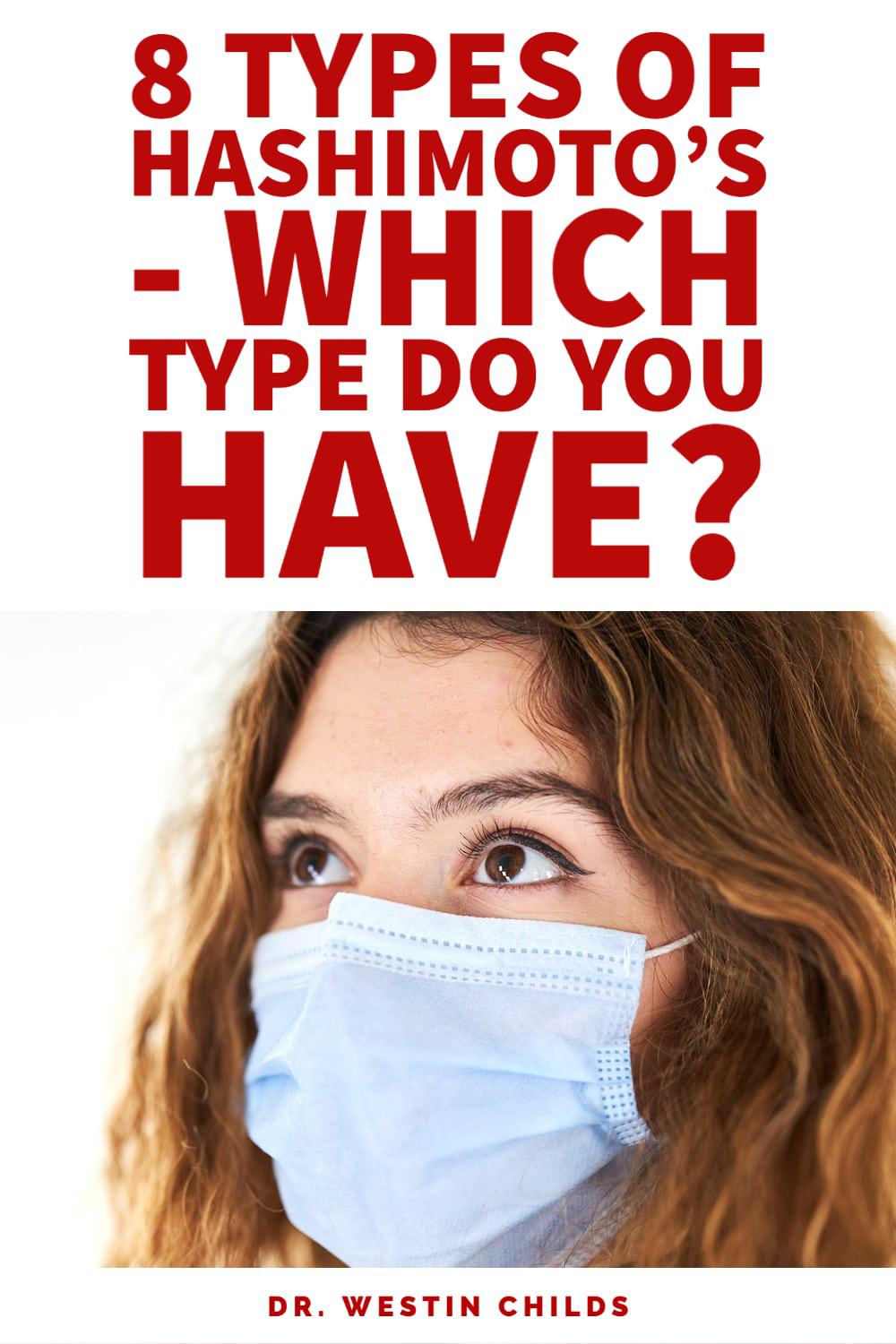
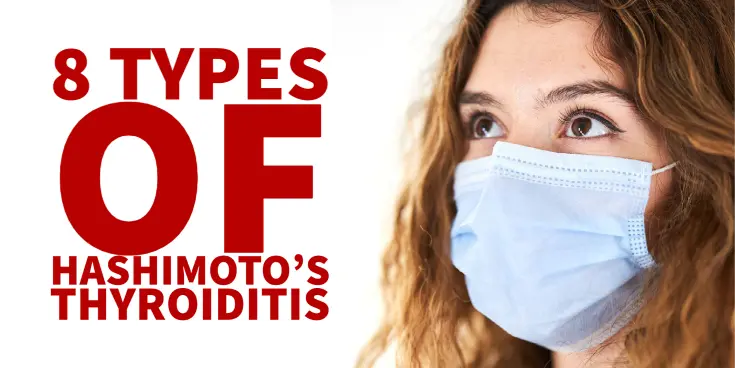
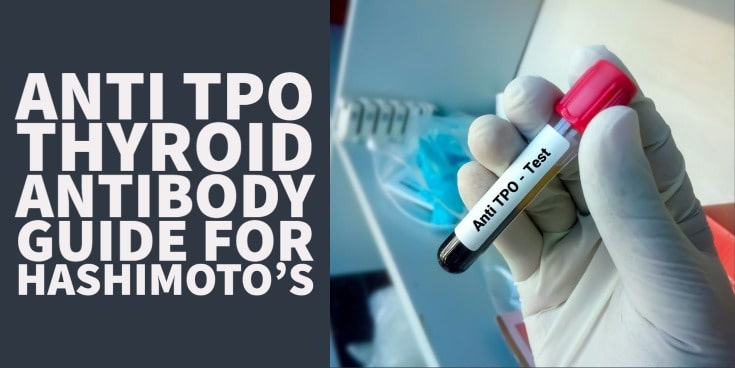
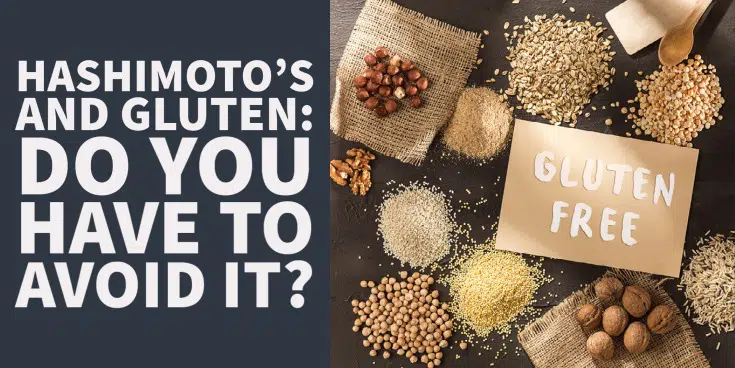
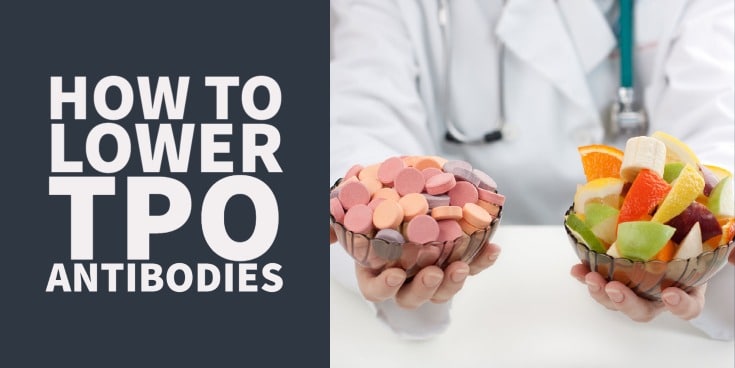
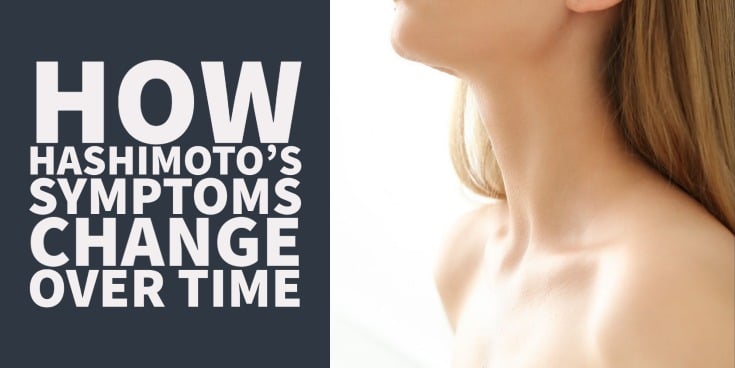
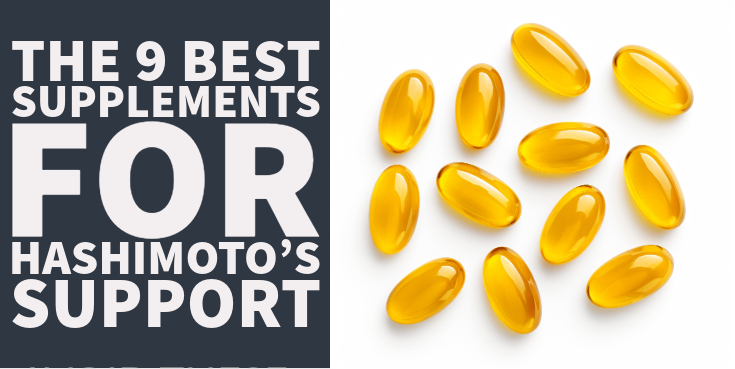


Dr. Childs, This is Donna Weiner you have ask how I am doing. You have to be one of the nicest Dr. I have ever come in contact with! Now to my big surprise, there is no such thing as thyroid disease. It all started when I was 19 years old & I got Mono. It created in me the EPTEIN BARR VIRUS. IT HAS BEEN IN MY SYSTEM EVER SINCE. SINCE OUR MEDICAL DOES NOT RECOGNIZE NOR DO THEY HAVE ANY TESTING FOR IT. THEY WENT THE CHRONIC FATIGUE SYNDROME AND THE THYROID DISORDER ROUTE. THE HELL THEY HAVE PUT ALL OF US THROUH! I’m Not blaming you, you were only taught what they wanted you to know! Now go to Amazon & order all the books from a man name Anthony William ! He is a remarkable man. Order all his book’s starting with Medical Medium & he will tell his story. Celery juice is the answer along with different foods & supplements. He has a book on Celery juice,Thyroid healing,Liver Rescue, Life changing foods,Super & Whole Foods! Please get these books! You are a wonderful & caring Dr. One of the nicest I have found online. You really do care about people! Now I want you to get into this field so you can really cure people & not have to tell them they have to live with Thyroid Disease or Hassimoto’s for the rest of their lives. Good luck & God bless you for all the good you have done so for! Anthony William works with quite a lot of Dr.’s. He is also on YouTube, Facebook & Instagram. On YouTube just go where you type in names & there are all the things like interviewed on shows, podcast etc. Again Thank you! Donna Weiner. P.S. There are so many people waking up to what is really going on in this world. How we have been deceived by our every institutions.
I think I had Hashimoto for awhile before a Dr. tested me. I have Epstein Barr and Asthma. The Hashimoto is ignored because my blood tests come back normal. My current Dr. knows nothing about Hashimoto. I know now that many endocrinologist have limited knowledge with how to handle Hashimoto. They wait for Hashimoto to kill off your thyroid then put you on Synthroid.
I really need help. I am so tired most of the time and my quality of life is worsting as I get older. I think as far as triggers and why this happened, I am a little of several the categories.
I had beast cancer at 46. Had surgery chemo and radiation. About 3 years later started feeling fatigued. Around 4-5 years later was diagnosed with Hashimotos with antibodies.
Do you think breast cancer treatment could have been the cause of Hashimotos for me?
Hi Irene,
It’s possible. Remember, chemo and radiation are both stressors to the body. So whether they had a direct or indirect impact on your body will be hard to tell but I would guess that they had SOME (probably large) impact.
Hi Dr. Child’s,
First of all, thank-you for sharing your knowledge regardless of whether people purchase your supplements or not. I find this very admirable of you.
I have been diagnosed with three autoimmune problems. The first was a blood disorder called ITP. The second was Ulcerative Colitis which was diagnosed about 15 years later. The third was Hashimoto’s. I have been utilizing several of your supplements, and definitely feel they have helped me but my approach has haphazard. I also had three children between the ITP and the Ulcerative Colitis; so I having difficulty determining which type of Hashimoto’s I have and how to better structure my supplement support.
I have had my thyroid removed because of multiple nodules in turn causing cancer. Totally confused about what to do now. I gained about 25 pounds since having surgery in July. Please give me some advice. I was also told I have/had? Hashimotos , do I still have it if thyroid is gone?
Hi Melinda,
Yes, it’s possible to still have Hashimoto’s even after thyroidectomy because it’s nearly impossible to remove 100% of the thyroid gland. If your antibodies are still elevated afterward then that is an indication that you are still having the problem.
Hello Dr. Westin, I was diagnosed with Hashimoto’s disease years ago but was never told to make any changes to diet or take any type of supplements. My question is what do you recommend for weight gain, hair loss and depression. I am taking Oil of Oregano for my stomach but that’s about it. Please help.
Thank you,
Dolores Ortegon.
Hi Dolores,
I would start here 🙂 https://www.restartmed.com/tpo-antibodies/
About those hormone disrupting chemicals: You have in the list PCBs but how about PBBs (polybrominated) biphenols? Some of us live or lived in Michigan in the 70s when Fire Master (flameretardant PBB) was accidentally dumped into the food chain when it was mistaken for an animal-feed additive. I was diagnosed with EBV in the 60s, hypothyroid (not categorized) in the 60s, and now have at least 5 very distinct autoimmune disorders, possibly 6. So do many friends and family who live here.
Hi Noni,
Yes, there are many others, I didn’t include them all otherwise it would be a HUGE list 🙂 But you are correct in that there are many others.
I have been on thyroid medicine since May of 2019 and feel even worse now b/c I am so lethargic and had my labs done on all thyroid panels and they are within the normal range now – and that was done by an endocronolgist. BUT she cannot tell me why I’m so bad lethargic other than said I will check VD and B12 and they are both good so she said it would be something else not thyroid related to see regular physician and I know some thing is still not right – PLEASE HELP!!
I had a Molar pregnancy back in 2016 which I was not aware of for 3 months. It was removed at the beginning of month 4. Prior to that I was fit and healthy, exercised regularly and ate a healthy ish diet.
My bloods were monitored for a year following the Molar but it wasn’t until 2017 that I started to develop symptoms such as dizziness when walking, then sleeping for ages, no longer able to go to the gym.
I never lost the baby weight I had gained. In fact it kept increasing no matter what exercise I took.
Fast forward to 2018 and the Dr prescribes Levothyroxine at a high dose which I negotiate down to the minimum dose. I ask if there is another way and am told no, I’m on this for life!
Now, I’d already been told that my body reacts unfavourably to man made oral medication so I needed to find a solution.
Fast forward a year later and I have read so much about this subject, from your list I have worked out I am a mixture, I’m still reading, still learning. I’ve found supplements that appear to be working that contain what my body needs, and a diet that my body responds to (more carb than protein), which allows me to do Hiit exercises. I’m on my way back, I no longer take levothyroxine, does my Dr know? No, have they called me in for my regular bloods? No. I’m feeling better by reading articles on what to eat, how to exercise and look after myself. I don’t think I’ll be as energetic as I once was, but to be able to exercise means alot to me.
Thank you so much for articles like these, I’m learning so much.
Oh good Lord I have almost all of these: EBV/Mono at 14, Stress induced episodes, gut issues, severe Hashi episode postpartum, sensitive to iodine. I think I have estrogen dominance trigger (due to genetics and decreased ability to detox) too. I work hard to keep all these conditions at bay. In “remission” since 2004, but I think I have occasional flare-ups with stressful situations.
Please help!! I have been in a major flare for almost a year. The doctors are running all of these tests and can not figure anything out. I am struggling big time. I am now at the point where I can not eat anything and I’m having trouble swallowing what I can. I am reacting to all meds. My endocrinologist does not feel it’s my thyroid but the other 16 specialists do. I was diagnosed almost 20 years and this is the worst. I have ever been. I don’t know where to turn. I’m even reacting to supplements.
Try 200mcg Selenium and Inositol.
Dear Sir, Thank you for your helpful article on Hashimoto’s. My periods of chronic fatigue symptoms started 10 years ago, leading to Diagnosis of CFS in 2014. However, whether it was a coincidence or not, following a severe blow to my head and a CT scan in 2015, after which my symptoms worsened and I saw a in endocrinologist in 2016, who diagnosed autoimmune thyroiditis and started me on levothyroxine, my symptoms (typical for hypothyroidism) continue along with autoimmune blood tests which continue to show raging antibodies, despite TSH improving to less than one.
2 Questions:
I’m not sure how much high dose x-rays such as CT scans impact the thyroid gland? (I have had many in my life, now aged 58)
I have also been living for the last 40 years with at least 15 amalgam (mercury) fillings in my mouth. Could this be implicated in the triggering of my autoimmune thyroiditis?
Your opinion will be very much appreciated, and if appropriate, your suggestions for action that I could take to improve my symptoms. Thank you Mr Nick Wins UK
Dear Dr Child’s,
I am one of those mixes, I think! I had a goiter as a teenager, and over weight almost all of my life. At 16, my father passed away suddenly. In my early 20’s, we attempted to get pregnant, after 1 1/2 years with no success. I was diagnosed with hypothyroidism. I have been on thyroid medication since. We were able to have 2 wonderful children. At 30, I lost 113 pounds! Yippee. My father in law got cancer and passed away, within 5-7 years I gained it all back! In my mid 40’s I had a hysterectomy, felt better. Then we joined a gym, I worked out an hour a half 4-6 days a week. No sweating and no weight loss. I told my doctor about this and I was told, “oh you will get it,” I got vertigo! Then one evening I had eaten a pasta dinner, by 10 pm, I could feel my heart pounding. I thought just excitement for our daughters soon to be wedding. At midnight I woke up to hearing my heart pounding in my ears, feeling it in my carotid arteries in my neck and my chest. My husband took me to the ER and of course the first thing they do is put me on heart monitors, and blah blah blah! I was admitted into the hospital for testing. The nurse asked if I have ever been tested for something called Hashimoto? What is that? I went back to my “you will get it doctor” and she said I had Epstein Barr at some point and my antibodies are 9. Continuing taking your medications. I had recently gotten my Certified Dietary Manager degree and thought I wonder about my diet? All my findings were gluten free! I seen a nutritionalist for supplements and dietary guidance. A godsend! I did a detoxing period and felt great! I have not introduced gluten back in, but that is when I found out dairy is not my friend too. Reading about Soy and it’s not on my plate either! I have eaten like this for over 3 years. I am still frustrated with no weight loss, but I am feeling better most days. By the way, I also changed doctors!
Thank you so much Dr. Childs for all you do to help and educate those of us suffering from thyroid disease. You are such a blessing! I have Hashimoto’s and believe I’m a mixed type as I have had EBV, Lyme disease, combined Immune deficiency, adrenal fatigue as well as probable toxicity from dental amalgams. I have used adaptogens (ashwagandha) kelp, selenium, zinc, l-tyrosine as well as multivitamin to help support thyroid, but, my symptoms have skyrocketed over the past three years. I gained 40 pounds suddenly for no reason and have severe edema (myxedema) which I would like to use NAC and Bromelain to try to reduce mucin accumulation. I have read conflicting reports that say NAC is not safe to use with amalgams in place and others say to definitely use it to decrease mercury toxicity. Dr. Childs, can you tell me if you have read any studies regarding this, or the safe use of NAC with amalgams? As always, thank you so much for your expertise and your caring compassion.
I was diagnosed with Hashimotos thyroiditis a few weeks after a head injury and have had chronic headaches for over 4 years following the head injury. Multiple MRI’s, MRA and CT scans find no reason for the headaches. They are 24 /7 every day but I have a regimen that makes them manageable so I can function. I take armour thyroid 5 mg 4 days a week and 10 on M,W,F each week. Also take supplements and seem to be getting along fairly well. The thyroid was biopsied but while clearly not cancer, no one seems to know why I have multiple thyroid nodules. The supplements have helped to reduce the size as I no longer feel like I am choking and having difficulty swallowing. My feeling is that my high stress job, (nurse in a medical office) is the cause of my hashimotos, and prior to the flair up have had some symptoms for about 10 years mostly anxiety and mild fatigue and low grade depression for which I chose not to take anything. I have had the west nile virus but not sure if anyone knows if that could be a factor. Been tested for multiple things but nor for EBV, may check into that.
The armour is the only Rx I take but am wondering if levothyroxine is a better alternative for hashimotos. I will be going on Medicare next month and find that the Medicare D plans do not cover armour but will cover levothyroxine. What are your thoughts on this? Thank you in advance.
Hi Pat,
One is not necessarily better than the other. I determine which medication should be used on an individual basis.
Hi Dr.
I just read your causes of Hashimoto’s and wonder if menopause can be a cause. I was diagnosed when I began menopause and just assumed I was “getting old” I know so many women who also have thyroid issues (Hypo or Hashimoto’s) when in menopause. I’d be interested if that may be a factor.
I think mine was a combo of stress and menopause and years of beating up my body with eating disorders.
I do ok now with Synthroid but it only works if I keep stress low and avoid carbs. Diet is crucial.
Thanks for the great info and resources.
Katy Cable /Actress & social media influencer
Hi Katy,
I think it’s more of the fact that menopause unmasks low-grade thyroid conditions as opposed to causing them. The changes in your hormones during menopause do impact the thyroid but I don’t think they cause thyroid disease directly. But, you are 100% correct in that many women start to experience thyroid problems once they hit menopause. It’s the main reason I recommend that women get their thyroid under control BEFORE menopause. If they don’t, they are going to have a very hard time trying to manage their symptoms and thyroid after menopause.
I can’t thank you enough for somehow popping into my Facebook feed when I needed you most. I am one of the ones “who are just unlucky” that I never got a diagnosis for hypothyroid or Hashimoto’s in spite of years of red flags or “Red Herring” as the first endocrinologist I ever visited called it as he literally laughter at me and told me to “eat less and exercise more.” I have always been a thin person and rather obsessively excised.
But I won’t digress how my nightmare has unfolded other than I finally got a diagnosis of Hashimoto’s and Thyroid Cancer on a pathology report.
21 years gone by now, the last 10 years spent with 2 functional medicine doctors. I have about outcomplicated and frustrated the second one at this point.
BUT WHY I AM SO HAPPY to have found the WEALTH of knowledge you have put together in a fashion that is so readable and understandable is my mission to save my daughters thyroid. She also has been seeing my 2nd functional med dr. Since 2014. Although we have done a lot of the right things with testing and gunshot supplementing I feel we have been spinning our wheels and losing valuable time.
Life is stressful and this year we had a very stressful event for our immediate family at the same time that the thyroid medication she was taking was changed due to recalls, etc. The stressful event involved my husband/her father having an “uncomplicated surgery” go horribly bad with a month of complications. So he is on the bottom now too.
You have answered the questions I have not been able to get an answers to for my daughter and my husband and I have only scratched the surface.
For myself, I have years and stacks of expensive labs and micronutrient testing that was just overwhelming to try to piece together. I spend my days in an almost constant cycle of mixing/dropping/swallowing supplements in some for or another to try to fill this tub with out a plug.
Your Bundles are brilliant and just what everyone in my family needs right now, each with our own individual needs but all with a strained thyroid/adrenal/nutritional issue at the moment.
Thank you.
Hi Melissa,
So glad you find the information helpful! I don’t plan on stopping anytime soon so there should be a lot more info to come 🙂
Do you phone consultations? I’d like you to review my thyroid test results! Thanks
Hi Charleen,
I am not doing phone consults right now but I will send out an email if that ever changes!
Hello. But how can we find the cause of out thyroid hashimoto’s? I’ve been trying to do that and can’t figure it out… I did have an infection on a toe some time before I was diagnosed with hashimoto’s because of a shoe that hurt my little toe… Could it have been that? I would really appreciate your thoughts on this. And if it was this, what can I do to help? Thanks for your help.
Hi Carmo,
Please see this article which discusses finding the root cause of Hashimoto’s in more detail: https://www.restartmed.com/root-causes-of-hashimotos/
Hello Dr. Childs,
I have the genetic of Hashimoto’s.
I was diagnosed in August of 2015.
My endocrinologist told me there was nothing that I can do to get my antibodies down and food is not to blame. Just eat what I want.
I follow you on YouTube and Pinterest.
Any comments?
Hi Gwendolyn,
Yeah, that’s just incorrect. Plenty of people have been able to reduce their antibodies with a variety of treatments ranging from off-label medications to diet to supplements.
Black seed oil, for instance, has been shown in a placebo controlled trial to lower antibodies: https://www.restartmed.com/black-seed-oil-hashimotos/
You can learn more about diet, lowering thyroid antibodies, and other facts about Hashimoto’s below:
https://www.restartmed.com/hashimotos-diet/
https://www.restartmed.com/tpo-antibodies/
https://www.restartmed.com/hashimotos-facts-every-patient-should-know/